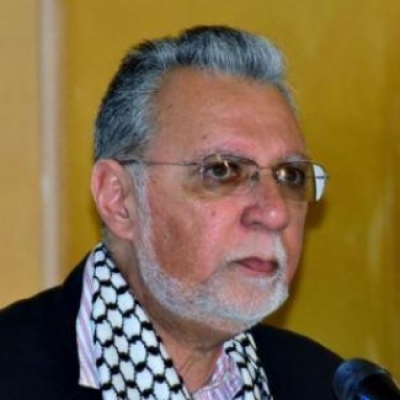



 Firoz Osman
Firoz OsmanThat Dr Mohammad Mursi, the first ever democratically elected president of Egypt, was murdered is not in doubt. He may have collapsed in a Cairo court and died but there is a history to his six years of incarceration suffering extreme mistreatment at the hands of regime thugs.
President Mursi was ousted in a coup d’état by General Abdel Fattah al-Sisi in July 2013. Sisi was the defence minister yet he violated the constitution and carried out the bloody coup.
In addition to the crimes of the Egyptian regime, Mursi’s murder is also an indictment of the African Union (AU), currently headed by Sisi who is in flagrant violation of AU’s principles.
The AU has rules on sanctions that govern any unconstitutional change of government in member-states. The military coup in Egypt leaves no doubt that what happened in July 2013 was an unconstitutional act.
Further, those involved in engineering the change through a coup should not contest any elections. General Sisi orchestrated his own “election” and thrust himself into the presidency thereby violating another AU rule that reinstated Egypt after its expulsion in 2013.
Mursi faced daunting challenges as president. The surprise election victory by Egypt’s principal Islamic Movement that was harassed and oppressed by successive tyrannical military regimes for decades not only shocked the regime but other regional despots as well as Western countries that feign support for democracy.
Whilst the ouster of Tunisia’s erstwhile strongman General Zein al Abdin Benali caused some ripples, the downfall of Egypt’s Hosni Mubarak was earth shattering.
Egypt is the most populous and militarily strongest Afro/Arabian country, and very influential in both Africa and the Arab world.
Colonel Anwar Sadat, Mubarak’s predecessor had betrayed the Palestinian cause by signing a “peace treaty”, effectively a surrender, with the Zionist Israeli regime, leading to billions of dollars gushing into its military coffers.
Saudi Arabia and Gulf entities then established clandestine security ties with Israel, clamping down on legitimate Resistance movements fighting for independence, freedom and dignity.
The victory of Egypt’s Islamic Movement (Ikhwan al Muslimoon) in relatively free and fair democratic elections derailed the nefarious plans of the US, Israel and Gulf Sheikhdoms led by Saudi Arabia to dominate and control the energy-rich region.
However, the Muslim Brotherhood’s history of non-violence, focus on social justice and free and fair democratic election victory did not protect them from the machinations of the Egyptian ruling elite in cahoots with the dominant Western powers.
Despite President Mursi’s assurance to address corruption, alleviate poverty, reduce traffic congestion and uplift the social conditions of the people as a whole, the “deep state” plotted from day one to remove him from power.
The generals, all appointed by the dictator Hosni Mubarak; the judiciary; the police; media and business barons colluded to undermine the rule of the Freedom and Justice Party, the political wing of the Muslim Brotherhood, that won the elections.
The Deep State engineered food and energy shortages; the media fabricated stories of an impending imposition of Shari‘ah; rumors that Coptic Christians will face persecution; and the judiciary that blocked laws to reform the Constitution and demanded referendum after referendum.
Israel felt threatened because the Palestinian Resistance Movements Hamas and Islamic Jihad were the ideological offshoots of the Muslim Brotherhood. Saudi Arabia, the United Arab Emirates and other Gulf Sheikhdoms feared that if democratic elections in Egypt were successful, these would motivate their own populations to demand the same.
Leftists and liberal Egyptian parties and student movements who lost the election felt dejected and joined the Deep State’s anti-Muslim Brotherhood brigade. As a consequence, with the approval of the West, Israel and the Gulf rulers, the military carried out a coup, massacred thousands at Rabaa Square and elsewhere, and arrested, tortured and killed an estimated 60,000.
Many lessons have been learnt from the Egyptian experience, particularly the fact that the West pays mere lip service to democracy. The current uprising in Algeria and Sudan demonstrate that these movements demand the total removal of the military ruling elite from governing structures.
One of the African Union’s fundamental principles is to promote democracy, good governance, fair and free elections and constitutional order in the continent.
Amnesty International’s North African Campaigns director Najja Bounaim said, ”During his time in power President Abdel Fattah al-Sisi has demonstrated a shocking contempt for human rights. Under his leadership the country has undergone a catastrophic decline in rights and freedoms.”
She further opined that "there are real fears about the potential impact his chairmanship could have on the independence of regional human rights mechanisms and their future engagement with civil society.”
Since 2015, Egypt has orchestrated a sustained political attack against the African Commission on Human and Peoples' Rights (ACHPR), the body that aims to monitor African states' human rights records. "Dozens of cases alleging serious human rights violations have been lodged against Egypt at the ACHPR.
It is truly ironic that the AU, with General Sisi at the helm, decided to suspend Sudan for killing a hundred civilian protesters, a crime that he himself is guilty of. If the AU is to retain its credibility, the brutal slaying of Mohamed Mursi should not go unpunished.
(Dr Firoz Osman is an executive member of Media Review Network, an advocacy group based in Johannesburg, Gauteng. email firozosman@yahoo.com)
